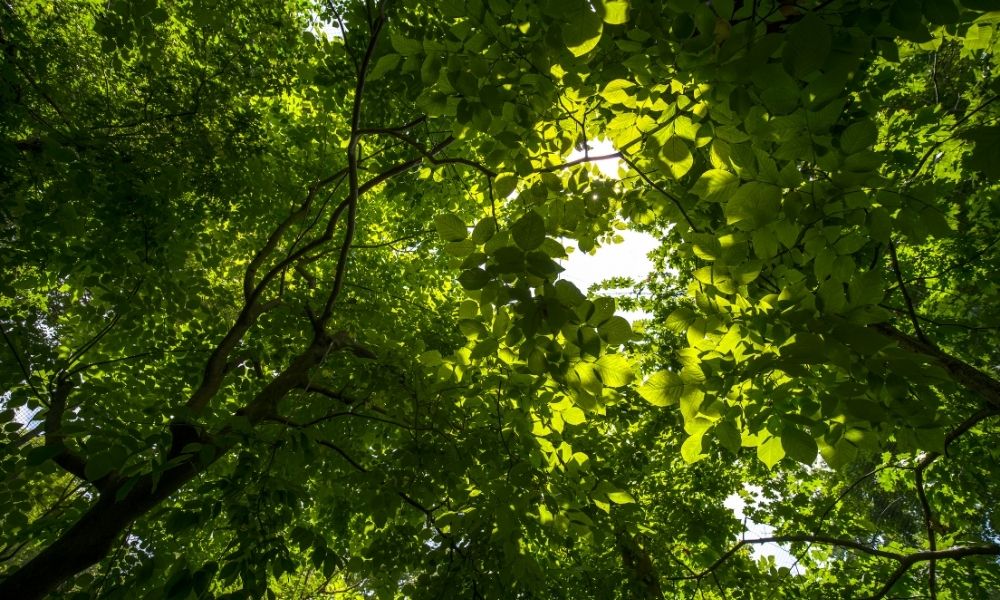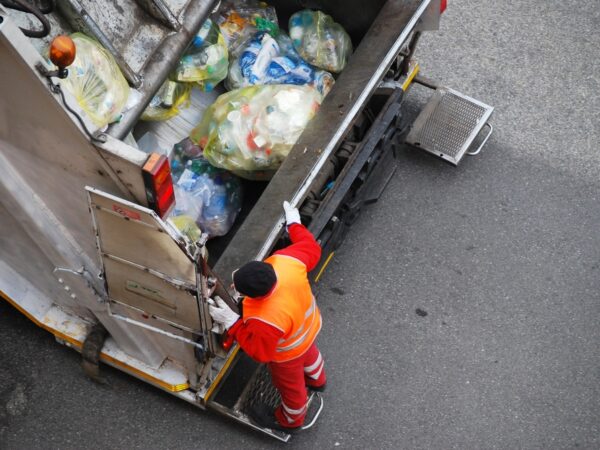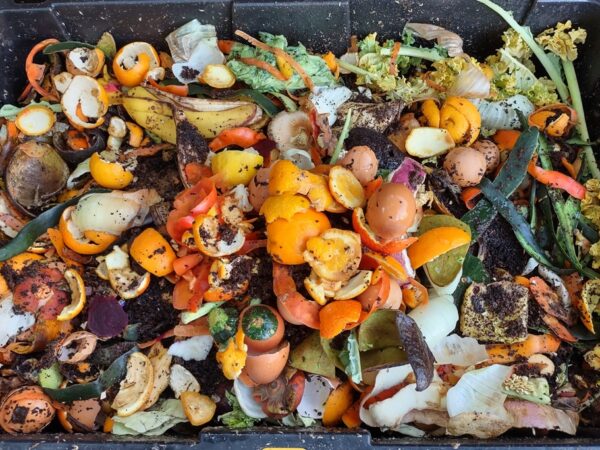About the Project
What does it take to build a healthy environment? It starts with protecting people from the toxic impacts of our current waste systems. At Just Zero, we work with communities across the country to challenge and change the status quo that treats waste as inevitable and environments as expendable. Our Healthy Environments project supports grassroots efforts to fight back against dangerous landfills, incinerators, and industrial waste operations. We provide tools and resources to support communities in their efforts to stand up to powerful polluters and push for safer, more sustainable alternatives. Together, we work to replace harmful waste systems with solutions that prioritize health, equity, and long-term environmental resilience. Every person and every community deserves to live in an environment with clean air, clean water, and freedom from toxic exposures. By revealing the harms of polluting waste systems and practices, we can disrupt our toxic waste cycle once and for all.
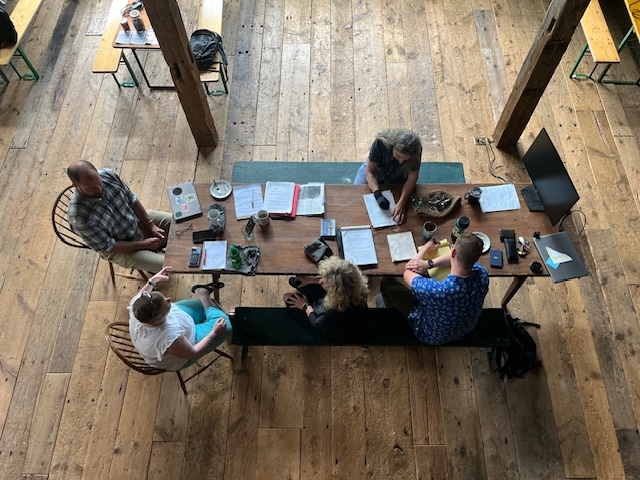
Photo: Just Zero
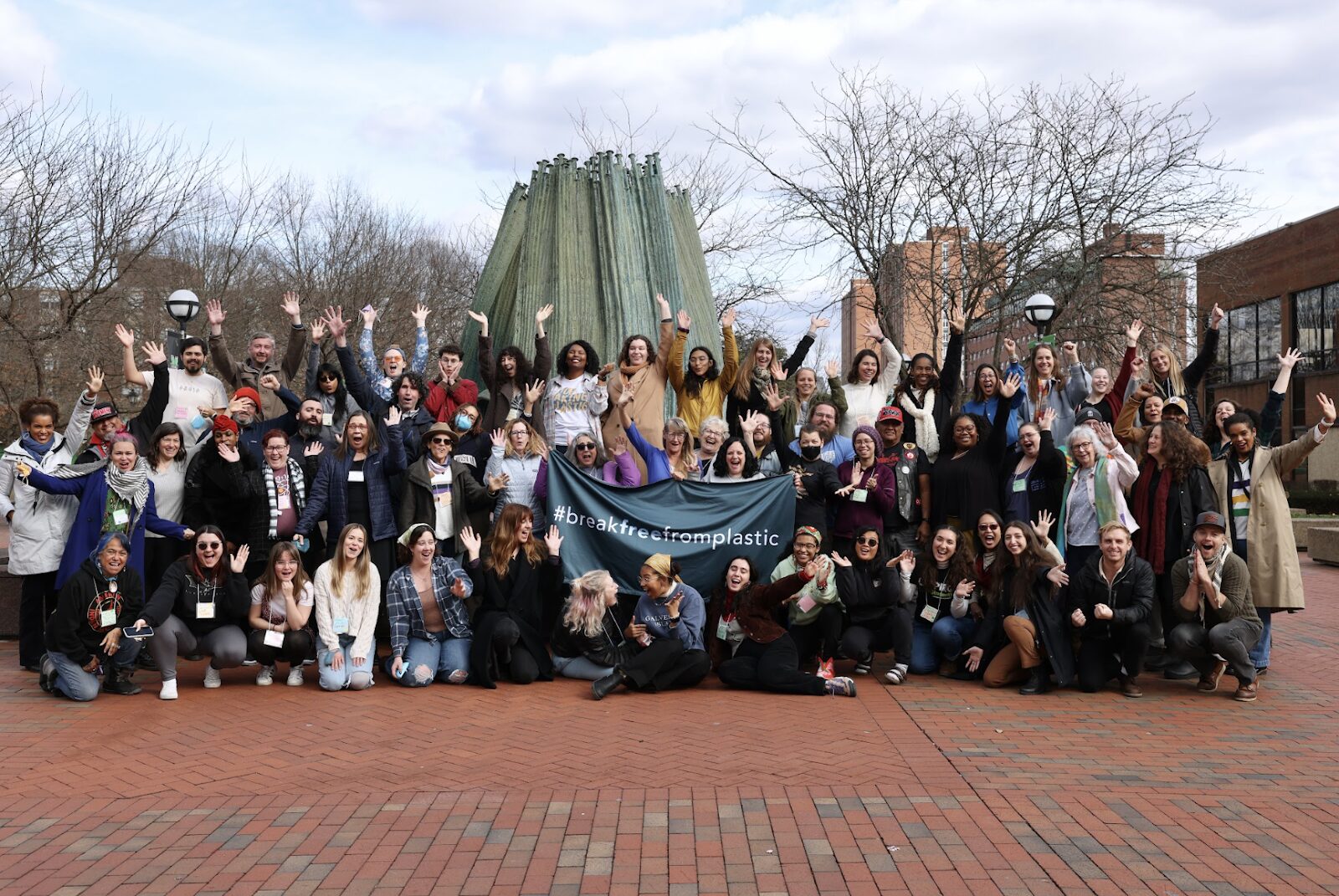
Photo: Just Zero
The Problem
From leaking landfills to climate-damaging incinerators to fields drenched in toxic sewage sludge, our current waste systems destroy the environment and threaten our health. Burying waste, burning waste, and spreading waste on farmland are not waste management solutions, they are outdated, unsustainable, and deeply unjust crises that damage our climate and poison our environment. Worst of all, these polluting practices target historically marginalized communities, including communities of color, low-income, and limited English-speaking proficiency.
Most waste in the U.S. ends up in landfills. Whether they’re filled with food scraps, plastic packaging, yard waste, or toxic industrial materials, landfills pollute the air, contaminate water, and destroy ecosystems. As waste breaks down, it releases methane – a supercharged greenhouse gas that fuels the climate crisis.
Landfills don’t keep the toxics in our trash from entering the environment. All trash – including items made with harmful synthetic chemicals – eventually breaks down, leaching dangerous chemicals, pollutants, and microplastics into our water, soil, and air. Residents living near landfills are exposed to hazardous air pollutants and threats to drinking water. These are not just nuisances – they’re environmental injustices.
Burning household trash, plastic, medical waste, industrial waste, sewage sludge, and any other kind of waste, releases dangerous toxics. It also damages the climate and threatens public health. Every facility that burns trash is a threat to communities and the climate. From aging incinerators to newer “advanced recycling” operations that melt or vaporize plastic into dirty fuels, all high-heat facilities pose the same core risks. Plus, these facilities don’t “eliminate” waste; they use high temperatures to break trash down into dangerous and climate-damaging emissions and toxic byproducts like ash and char.
Across the country, sewage sludge – a toxic byproduct of the wastewater from homes, businesses, industrial facilities, and landfills – is being promoted as a “beneficial” fertilizer by state and federal agencies, wastewater treatment facilities, and companies that benefit financially from the processing and hauling of sludge. For decades, farmers have been encouraged to apply this waste to farmland (often receiving it for free), and the public has been told it is safe to use on their lawns, gardens, and houseplants. Why? Because a multibillion-dollar industry has been built around the lie that sewage sludge is “safe.” But spreading this so-called “fertilizer” is a dangerous and toxic practice that pollutes farmland, gardens, food, and water.
This practice quietly turns farmland into dumping grounds for toxic pollution. The contaminants in sewage sludge – especially microplastics, as well as “forever chemicals” known as PFAS – accumulate in our soil, leach into water, absorb into crops, and are ingested by animals and people. Once those contaminants are spread on land, there is no effective way to clean them up. Corporate polluters frame this as “recycling waste,” when it is really a hazardous, irreversible process by which those polluters are turning our precious farmland into toxic waste dumps.
These toxic and polluting waste practices aren’t just environmental problems – they are public health crises. Together, we can change this. How? By opposing these false solutions through policies and coordinated campaigns that protect our communities; by exposing the lies that prop up dangerous waste practices; and by developing systems that responsibly reuse and recycle materials – rather than disposing of them.
Areas of Impact
Burning waste emits dangerous toxics into the air and burying waste releases the toxic chemicals in our trash into our air and water. Landfills also emit methane, a powerful greenhouse gas, into the atmosphere.
Waste systems prop up corporate giants while leaving communities to pay the bill for the pollution and public health impacts. Opposing these systems helps shift power and profits away from polluters toward local, sustainable, job-creating solutions.
When we throw trash away, it doesn’t disappear. Away is a real place. Dangerous waste facilities are routinely forced into communities of color, low-income, and/or limited English proficiency, who bear a disproportionate burden of pollution from these facilities.
Burning and burying trash pollutes our air, soil, and waterways – exposing people to dangerous toxics that can compromise their health. These facilities are never safe, and no community should be forced to have them as a neighbor.
Our Policy and Advocacy Solutions
There’s no doubt about it; the waste industry is relentless. When a company peddling a false solution sets its sights on a particular community – often a historically marginalized community – it is ready to spend big to get what it wants. Waste companies invest huge sums to convince government officials and the public that their facilities are safe and even beneficial for communities. And they hire expensive consultants and lawyers to help them navigate local, state, and federal permitting processes.
But that doesn’t mean communities are powerless to fight back. Many of the local, state, and federal permitting processes for polluting waste facilities incorporate opportunities for the public to be heard. Before a new incinerator is built, or an existing landfill expanded, a waste company will likely need to notify the public and hold informational meetings. And before the government approves its plans, it often must create a process for the public to submit written comments or to request a public hearing. Each of these presents an opportunity for the community to point out shortcomings in the company’s plan, to demand additional protections, or to make a case for why the facility should not be built or expanded in the first place.
Many dangerous proposals have been defeated because the community demanded better and refused to give in. The process can be overwhelming, and it might seem like an unfair, uphill battle. But that’s why Just Zero is here to help.
Progress Highlights
Helps Stop the Development of a Sewage Sludge Incinerator
Just Zero assists New York residents in blocking a proposal to build a massive new sewage sludge incinerator in the town of Moreau.
Blocks The EPA From Opening the Door to Advanced Recycling
Just Zero leads advocates across the country in opposing the plastic industry’s efforts to include so-called “advanced recycling” in the EPA’s Safer Choice program.
Works to Limit PFAS Pollution from Vermont’s Only Landfill
Just Zero urges the Vermont Agency of Natural Resources to implement a program that will reduce the presence of harmful “forever chemicals” in the leachate generated at the Coventry Landfill in Vermont.
Urges EPA to Prevent PFAS Pollution from a New England Wastewater Treatment Plant
Just Zero urges the EPA to implement stronger requirements on one of the country’s largest wastewater treatment plants – Boston’s Deer Island – including a ban on the use of the sludge generated at the facility as a fertilizer.
Opposes the Expansion of a Mega-Landfill in New York.
Just Zero works with community members in New York to oppose the expansion of the state’s largest dump – the Seneca Meadows Landfill.
Just Zero works side by side with communities across the United States to envision, draft, and support policies – including local ordinances and state laws – that protect communities from toxic and climate-damaging impacts of false solutions like landfills, incinerators, and spreading sewage sludge. Ultimately, there is no better way to protect your community from a toxic practice than by passing a law that bans that practice.
Cities and states throughout the country have taken exactly this approach, imposing statewide bans on the spread of sewage sludge or zoning ordinances that prohibit waste-burning facilities. Others have passed laws that close loopholes that make it easier to operate toxic facilities or restrict the locations where dangerous incinerators or landfills can be built.
Programs and policies at the local, state, and federal level that reduce waste and bolster recycling and composting are an essential part of our work at Just Zero. Helping communities design real solutions to the waste crisis is what we’re all about. But demanding an end to toxic false solutions is equally important. In with the good, out with the bad.
Progress Highlights
Supports Bills to End the Land Application of Sewage Sludge
Just Zero partners with groups across the country to support efforts to pass legislation in Maryland, Massachusetts, New York, Oklahoma, and Texas that would ban or limit the land application of sewage sludge.
Launches High-Heat Legislative Toolkit
Just Zero publishes an interactive High-Heat Legislative Toolkit to help communities across the country pass laws and ordinances that prohibit or restrict the development of polluting trash burning facilities.
Helps Maine Become the First State to Block Advanced Recycling
Alongside partners in Maine, Just Zero helped pass a new law that blocks the development of any so-called “advanced recycling” facilities in the state. The law also clarifies that converting plastics into fuel and oil isn’t considered recycling.
Supports Efforts in Colorado to End Subsidies for Burning Waste
Just Zero testifies and supports legislation that would prohibit Colorado from providing incentives and subsidies to facilities that burn waste. These subsidies and incentives often are the only way these polluting facilities can remain operational.
Opposes Efforts to Undermine Maine Law that Ends Sludge Spreading
With the help of our partners in Maine, Just Zero opposes an attempt to rollback Maine’s first-in-the-nation law that bans the land application of sewage sludge and sludge-derived products.
Supports Legislation in New Hampshire to Limit New Landfill Construction
Just Zero testifies and supports legislation in New Hampshire that limits where new landfills can be located. The new requirements will help contain and mitigate the inevitable pollution landfills create.
Knowledge is power. It may sound cliché, but it’s true. The waste industry so often gets what it wants because it spreads myths, greenwashing, and other misinformation to make toxic false solutions appear far less dangerous than they are. To protect our communities from landfills, incinerators, and sewage sludge, we can start by taking this misinformation head on. By busting myths, exposing lies, and promoting truth.
The right facts are the most important tool in any campaign to build healthy environments for all communities. When a landfill claims to be a good neighbor, we can push back with information about climate damage, toxic leachate, and environmental injustice. When the waste industry touts supposed benefits of trash incineration, we’ve got facts about asthma, lead poisoning, PFAS, and toxic ash. And when corporate polluters claim that sewage sludge is healthy “fertilizer,” we can point to the toxic legacy that comes with spreading industrial waste on our country’s farmland.
As you work to protect your environment, Just Zero is here to help you expose the toxic lies that fuel the waste industry’s attacks on your community.
Progress Highlights
Calls on EPA to Acknowledge Impacts Associated with Sludge
Just Zero urges the U.S. Environmental Protection Agency to expand its efforts to understand the environmental and public health impacts assoicated with spreading sludge on farmland.
Launches National Coalition to End the Spreading of Sewage Sludge
Just Zero brings together more than 35 organizations that are all working to end the land application of sewage sludge in communities across the country.
Releases Report Exposing the Injustice Created by Landfills
Our report shows how a small number of enormously profitable waste companies have consolidated their control over the industry to create mega-landfills that deliberately target and pollute historically marginalized communities as “sacrifice zones.”
Hosts Inaugural Waste Free Future Summit
Just Zero hosts its first ever Waste Free Future Summit, bringing together advocates, community members, and lawmakers from across the country to learn about powerful strategies to replace toxic false solutions with real Zero Waste policies.
Publishes a Report Exposing the Lies Behind “Advanced Recycling”
Just Zero releases a groundbreaking report exposing advanced recycling for what it really is. The report shows that this technology is expensive, unreliable, and largely used to convert plastics into toxic oil and waste that is burned, not recycled.
Individual choices and actions can only get us so far when we’re facing a pervasive and systemic waste problem. Right now, the status quo of “make, bury, burn,” is threatening our health and the environment. We have better, less expensive, less dangerous options that don’t damage our climate or poison our environment. The good news is that many states, counties, and cities take a holistic approach to the waste they produce and how it’s managed using Solid Waste Management Plans.
The bad news is that these plans often take a lackluster, business-as-usual approach to waste planning that is rooted in toxic and climate-damaging landfills and incinerators, which have plagued communities and our planet for decades.
Solid Waste Management Plans can and should be an effective tool to completely re-evaluate and rework a community’s relationship with waste. These plans can provide the groundwork for programs that eliminate waste, invest in real Zero Waste systems, create jobs, and protect the environment.
Just Zero works with communities across the country to help ensure that Solid Waste Management Plans are setting us on a path to Zero Waste. We help educate communities about where their trash is going and the impact this can have on public health and the environment. We connect people who are striving to implement toxic-free and sustainable Zero Waste systems. And we weigh in on Solid Waste Plans to ensure they’re focused on solutions, not perpetuating environmental injustices.
Progress Highlights
Launches Solid Waste Planning Toolkit
Just Zero releases an interactive toolkit that identifies Zero Waste solutions and provides guidance to communities navigating the solid waste planning process and looking to create a pathway to Zero Waste.
Presents to the Philadelphia City Council
Just Zero assists the Philadelphia City Council as it explores ways to address the environmental justice and public health impacts of the city’s solid waste management system.
Weighs in on Connecticut Solid Waste Management Plan
When Connecticut began updating its Solid Waste Management Plan, Just Zero urged the State to abandon policy proposals and programs that would deepen the State’s dependency on polluting landfills and incinerators.
Presses New York to Revise Solid Waste Management Policies
Just Zero hosts its first ever Waste Free Future Summit, bringing together advocates, community members, and lawmakers from across the country to learn about powerful strategies to replace toxic false solutions with real Zero Waste policies.
Urges New Hampshire to Develop a New Solid Waste Management Plan
Just Zero leads the call demanding New Hampshire revise its Solid Waste Management Plan to include necessary and effective policies that will eliminate waste, strengthen recycling and composting programs, and phase-out unnecessary and unrecyclable plastics.
May 2, 2025 · MEDIA COVERAGE
May 20, 2024 · PRESS RELEASE
June 27, 2023 · MEDIA COVERAGE
What issue do you want to address in your community?
Legislative Toolkit
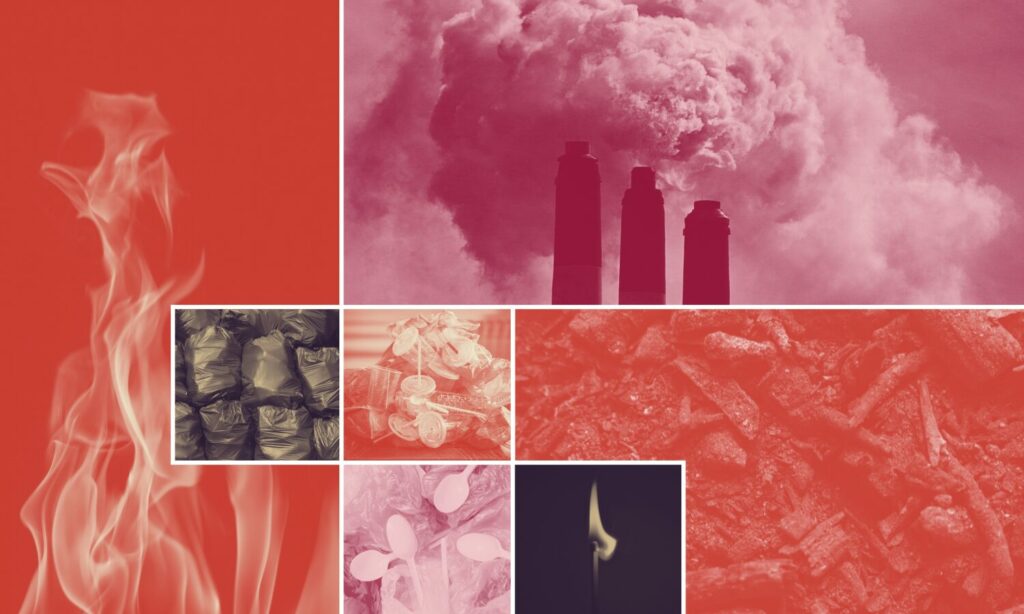
HIGH-HEAT FACILITIES
Protect communities from all forms of toxic and climate damaging trash burning facilities.
Advocacy Toolkit
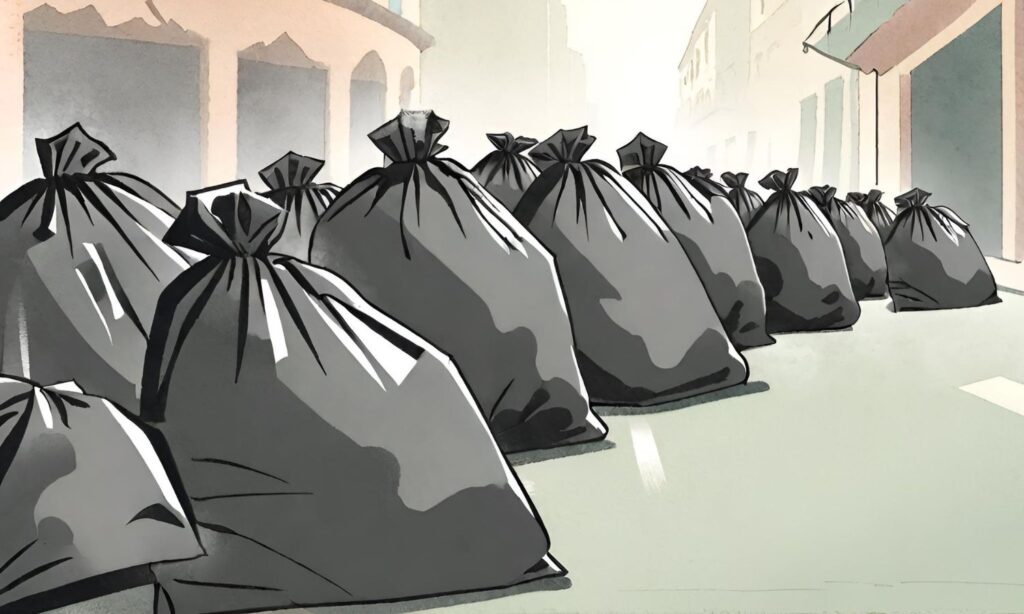
SOLID WASTE PLANS
Urge your state, county, or city to develop and implement a plan that prioritizes waste reduction.
Legislative Toolkit
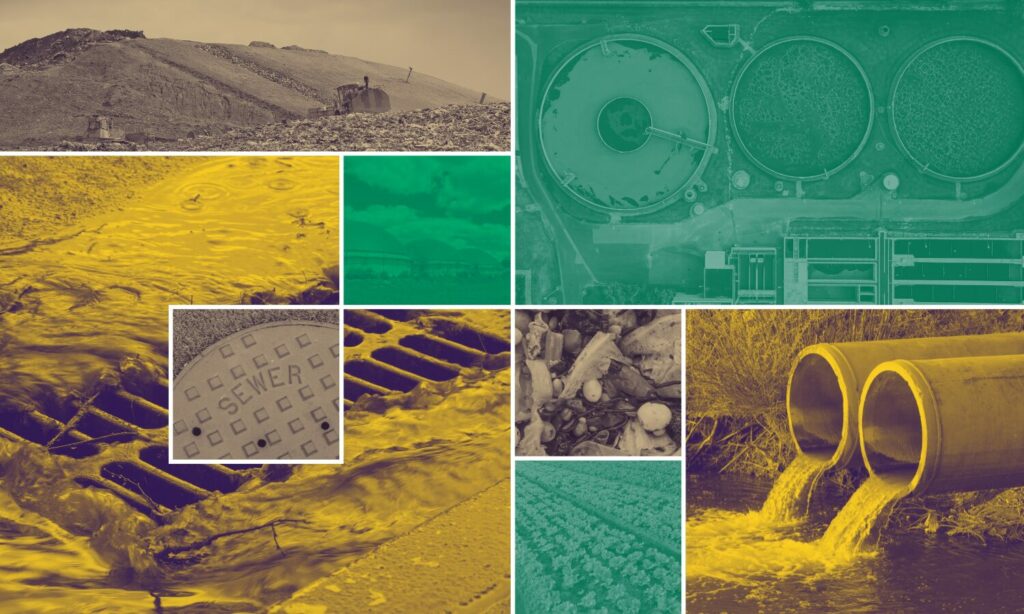
SEWAGE SLUDGE
End the polluting and toxic practice of spreading PFAS-contaminated sewage sludge on farmland.
February 6, 2025 · ISSUE BRIEF
December 14, 2022 · REPORT
Get Involved
Action Alert
Call on Big Box stores to:
Stop Selling Toxic “Fertilizer” Filled with PFAS
Fill Out the Form
Request a Speaker
Interested in having a Just Zero staff member speak at your event? Tell us about it!
Join the movement
Donate
Make a Gift and Become a Just Zero Member
Events
